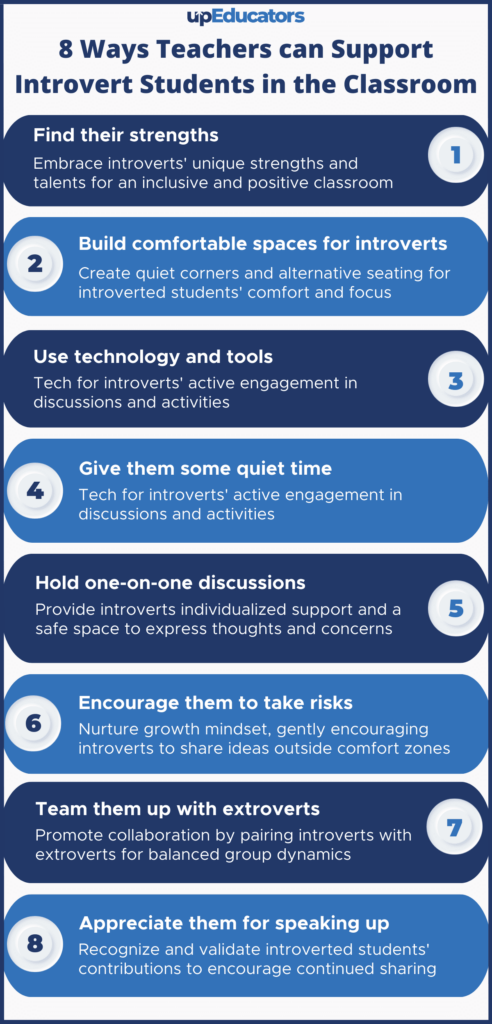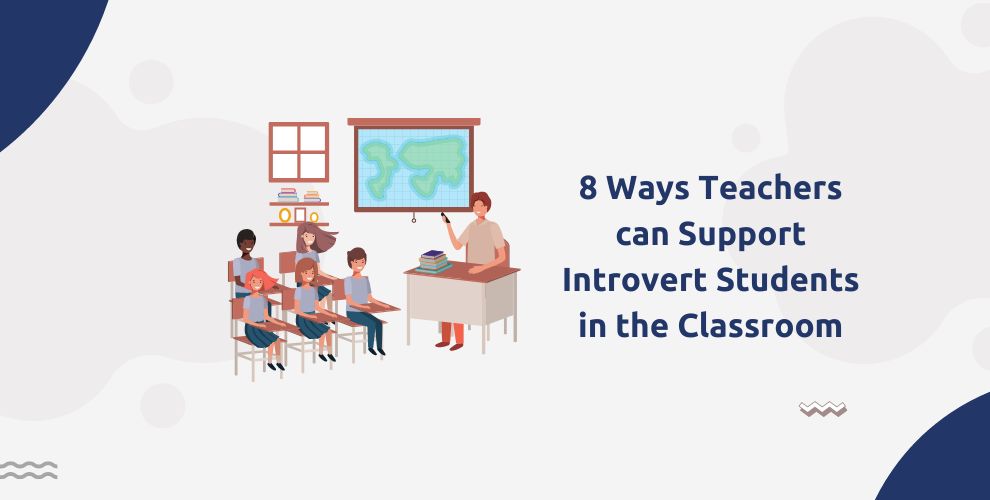Rohan, an introverted student, was often misunderstood as lazy by his classmates and teacher because he was quiet and rarely participated in class discussions. He was always seen sitting alone in the back of the class, not paying attention and not participating. His classmates and teacher thought he was not interested in learning and that he didn’t care about his grades.
However, one day, the class mentor noticed that Rohan was struggling and decided to have a one-on-one meeting with him to understand his problem. During their meeting, Rohan opened up and told her that he was an introverted person who found it hard to speak in front of others and that the fast-paced and noisy classroom environment was overwhelming for him. He also explained that he was shy and that he found it difficult to express himself in a group setting.
The teacher then decided to help Rohan in a way that would suit his learning style. She assigned him to work on independent projects and provided him with materials that he could read and understand on his own. She also created opportunities for him to express his thoughts and ideas in writing, such as through journaling or through online discussions. As a result, Rohan’s grades improved and he became more comfortable.

How to Identify Introvert Students?
There are several ways that teachers can identify introverted students in the classroom. Some indicators that a student may be introverted include:
- They tend to be more reserved and quieter than their peers, and may not participate in class discussions as much.
- They may prefer to work alone or in small groups, rather than in large groups.
- They may be more sensitive to stimuli such as noise and bright lights and may become overwhelmed in a busy or chaotic classroom environment.
- They may be more reflective and thoughtful and may take longer to process information and respond to questions.
- They may be more sensitive to criticism and may have lower self-esteem.
- They may have a hard time making friends or may have a small group of close friends.
It is important to note that introversion is not a disorder, it is a personality trait, so it is important to understand that introverts are not shy, they just tend to get their energy from being alone, as opposed to being in a group.
Expert trainers at upEducators often get asked how teachers can deal with introverted students. Here we discuss 8 proven ways to deal with introverted students in the classroom.
Find their Strengths
Teachers can identify the strengths of introverted students in the classroom by paying attention to their behaviour and participation in class, as well as by getting to know them better through one-on-one interactions or through informal assessments.
Introverted students may feel more comfortable working alone or in small groups, and may excel in these settings. Introverted students may have a strong ability to focus and pay attention to detail, which can be useful for tasks such as research, problem-solving, and critical thinking. These students may not speak up as often, but they may have a strong ability to listen attentively and absorb information. Some introverted students may have a hard time speaking up in class but may be able to express themselves well in writing.
Build Comfortable Spaces for Introverts
Teachers can help introverted students by creating comfortable spaces in the classroom where they feel safe and at ease to learn and express themselves.
Introverted students may need a quiet and calm space to work or to take a break from the noise and activity of the classroom. Teachers can provide a designated quiet area in the classroom or designate a specific time for independent work or study. Such students may feel more comfortable working in small groups. Teachers can create a designated area for small group work, or provide opportunities for small group discussions or activities. Moreover, introverted students may feel more comfortable working alone. Teachers can create opportunities for independent work or projects that allow introverted students to work at their own pace.
Use technology and tools to support introverts
Technology can be a powerful tool for teachers in creating a comfortable learning environment for introverted students. By using technology, teachers can create a more flexible and individualized learning experience that caters to the unique needs of introverted students.
Technology can provide introverted students with the ability to communicate with teachers and classmates on their own terms, for example through email, instant messaging, or online discussion boards, which can be less overwhelming than face-to-face interactions.
Online resources such as educational games and interactive activities, e-books, and online tutorials can allow introverted students to learn at their own pace. For example, Flip, an educational tool by Microsoft provides a feature for one-on-one interaction in a classroom. Even introverted students would find it comfortable to share their opinions using a platform like Flip.
Give them some Quiet time
Giving introverted students some quiet time can be an effective way for teachers to help them deal with an overwhelming classroom environment. Introverted students may feel overwhelmed by the noise and activity level of the classroom, and may need some time to process and recharge. Providing quiet time can help introverted students to better cope with the classroom environment and improve their learning experience
Hold One-on-one discussions
One-on-one discussions can be a more comfortable way for teachers to hold discussions with introverted students in the classroom. Introverted students may feel overwhelmed or intimidated by group discussions, and may be more comfortable and willing to participate in a one-on-one setting.
One-on-one discussions provide an opportunity for the teacher and the student to have an open and candid conversation, in a quiet and private setting, this allows the student to feel more comfortable and less self-conscious. This way, the teacher can get a better understanding of the student’s perspective and learning needs, and the student can feel heard and valued.
Encourage them to take risks sometimes
Encouraging introverted students to take risks and step out of their comfort zones can be an effective way for teachers to support their growth and development. While introverted students may feel more comfortable working independently or in small groups, taking on new challenges and stepping out of their comfort zones can help them to develop new skills and gain confidence.
One way teachers can encourage introverted students to take risks is by providing opportunities for leadership and collaboration. For example, teachers can assign introverted students to lead group projects or discussions, or ask them to share their ideas with the class. This can help introverted students to develop their communication and leadership skills and gain confidence in their abilities.
Team them up with extroverts
Teaming up introverted students with extroverted students can be a great way to help introverts become more comfortable in the classroom. By working with extroverted students, introverted students can learn to express themselves more confidently and can also pick up new social skills.
One way to team up introverts and extroverts is through group projects or group discussions. Extroverted students can serve as role models for introverted students, showing them how to communicate their ideas effectively and how to work well in a group setting. Additionally, introverted students can help extroverted students to understand the importance of listening, and how to work more effectively in smaller groups.
Appreciate them for speaking up
Introverted students should be appreciated for speaking up in the classroom because it takes a lot of courage for them to participate in class discussions and express their thoughts and ideas. They may be less likely to participate in class discussions due to their introverted nature, but when they do speak up, it’s important to acknowledge and appreciate their contributions.
By appreciating introverted students for speaking up, teachers can help to create a more inclusive and empowering classroom environment. This can also help introverted students to feel more comfortable and confident in the classroom, which can improve their learning experience.
One way to appreciate introverted students for speaking up is by providing them with positive feedback and recognition for their contributions. This can be done through verbal feedback, written feedback, or through a class reward system.
Introverted students have unique needs and abilities that should be recognized and respected in the classroom. Teachers can help introverted students by providing them with quiet time, creating comfortable spaces, and using technology and tools that can enhance learning. By providing opportunities for independent work, and one-on-one discussions, and pairing them with extroverted students, teachers can help introverted students become more
Author: This article is written by Samiya Rashid for upEducators blog.




